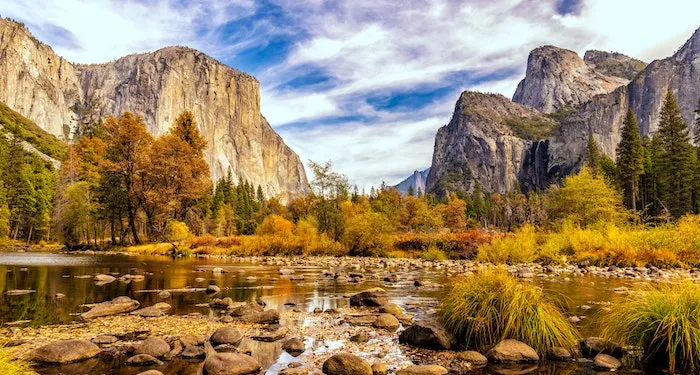
National Parks: The Past, Present, and Future — and Books to Read About Them
I don’t know when or how it happened — it might have been during a period of extended burnout when I craved some sort of escape — but somehow, I became entranced with the National Parks. I would pore over their Instagram feeds and started to think about visiting one. Well that’s not so weird, you might be thinking. Except for me, it was a little weird. I’m not really outdoorsy (although I’ve been trying to change that), and I’ve never been to a National Park. The one time I was supposed to go for a nature writing class residency, it was the summer of 2020, and, well. We know what happened.
But that hasn’t stopped me from watching documentaries, reading all of the guidebooks, memoirs, and books on the parks, and even incorporating it into our homeschooling. My son is much more outdoorsy, and has also fallen in love with the parks. The National Park Service has a great Junior Ranger program with many badges and programs that can be done online, and my son loves doing the booklets, learning about the parks, and then receiving his badges in the mail. The park rangers have been nothing but amazing, and now my son wants to join them.
History of the Parks
National Park Week 2022 is coming up from April 16 to April 24 and Junior Ranger Day on April 16, which got me thinking about books about the parks and their histories. While the park system may very well be “America’s best idea,” the way it was implemented left a lot to be desired. The lands were home to Indigenous peoples who were forced off the land, which was then stolen. Their history is well documented at national sites, and there have been battles over sacred sites in various parks. There have been arguments to return the parks to Indigenous tribes, but nothing has come of that yet.
History is a complicated thing. Every country reckons with its history, all the time. No country is ever perfect, no government is perfect, and as much as people hate to admit it, even our activists and heroes aren’t perfect. But history can be examined fully, discussed, and hopefully learned from. The parks are no exception.
If you read about the parks in any capacity, you’ll read about Theodore Roosevelt and John Muir. They are almost mythical figures in outdoorsy/parks culture, and they also said some pretty horrible things about Indigenous people. Muir could not conceptualize wilderness with Indigenous tribes living there. They took away from the land, he thought. Roosevelt felt that Black and Indigenous people were inferior to whites and, while president, agreed with removing Indigenous tribes from their territories. Ignoring this or removing them from the history doesn’t help anyone. It’s only through learning about them and their actions, and placing everything into the larger context can we see how history has helped shape the parks of today, and perhaps even shaped issues within the parks today.

Diversity in the Parks and Outdoors
More and more, diversity and access within outdoor spaces is being explored. J Drew Lanham, author of The Home Place, has written about his experiences being a Black birder in the South. Latria Graham writes about nature, her family’s relationship to nature and the outdoors, as well as discrimination in the parks. Carolyn Finney has explored representation in her book Black Faces, White Spaces: Reimagining the Relationship of African Americans to the Great Outdoors, and Derick Lugo chronicled his Appalachian Trail journey in The Unlikely Thru-Hiker.
But even so, many things that are written (or get the most publicity in outdoor magazines, outdoor websites, and in book projects) tend to be largely male and white. I do believe it is changing, though, both on the page and in the wilderness. There are countless initiatives like Outdoors Empowered Network, Hike Clerb, Diversify Outdoors, Indigenous Women Hike, and Latino Outdoors, focusing on increasing diversity in natural spaces and increasing access for those who may not otherwise be able to have outdoor adventures or feel comfortable enough to do so.
With more programs for children and teens, as well as the National Park Service Junior Ranger programs and their young adult programs, the NPS is looking to the future. While federal talks of giving land back have yet to be had, more people are discussing it. More and more programs are recognizing that underserved children and those who would not otherwise have access benefit from the parks, and so I’m hopeful that the future of the parks and the NPS will be a bright one, with improved accessibility for all.
The National Park Service is so much more than the 63 National Parks, which makes it a subject that can be explored in a variety of ways, at all different ages. There are National Battlefields, National Historic Sites, National Lakeshores, National Parkways, National Scenic Trails, and much more. Guidebooks, novels, memoirs, and histories of the parks are just some of the types of books about the parks that are out there, for all ages. Especially if you can’t get to a park right now, reading about them is the next best thing.
I’ve gathered a few books for both children and adults to whet your appetite. If you’re looking for even more books about the outdoors, check out this post on camping books for kids, and this post on books about sustainability and nature.
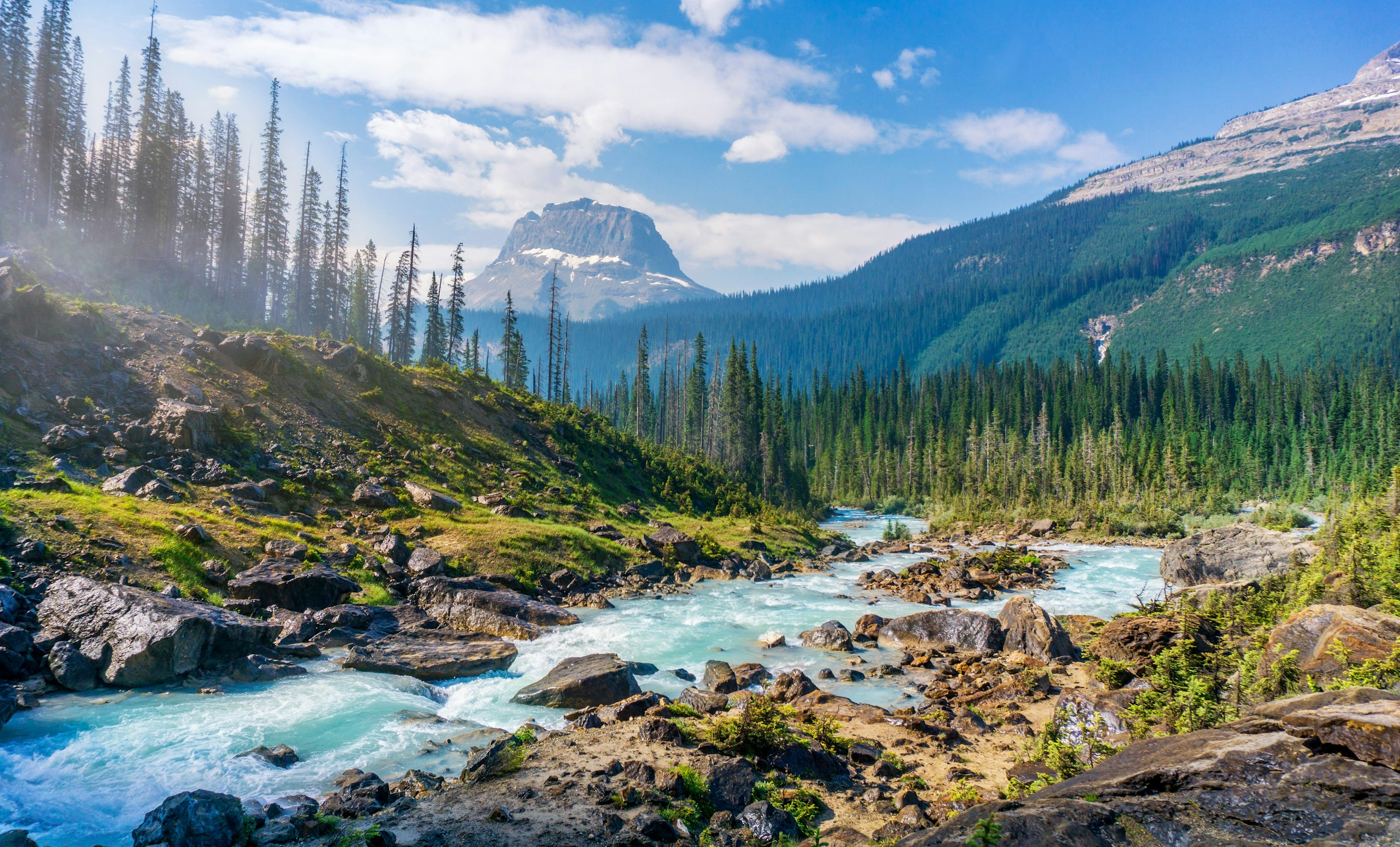
Books About National Parks/Outdoors for Children
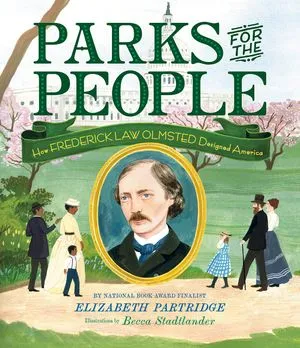
Parks for the People: How Frederick Law Olmstead Designed America by Elizabeth Partridge and Becca Stadlander
This picture book biography takes a look at Frederick Law Olmstead, who designed Central Park, but also contributed his vision and plans to the National Park Service in his Yosemite Report. It’s an interesting look at someone who doesn’t get mentioned often, and a great addition to any park-loving child’s library.
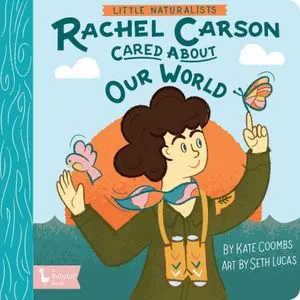
Little Naturalists: Rachel Carson Cared About Our World by Kate Coombs and Seth Lucas
These board books are really cute introductions to people involved in nature, conservation, and the park system. In this book, children are introduced to a leader of the environmental movement through a fun and colorful board book. These are a fun way to introduce important naturalists to your child, and even older kids will enjoy looking at them.
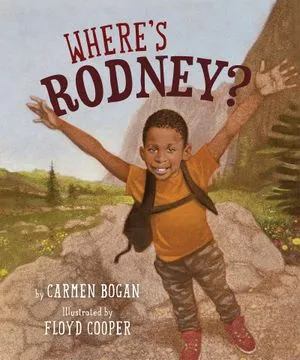
Where’s Rodney? By Carmen Bogan and Floyd Cooper
Rodney always wants to be outside. It’s where he can move and play. Although there’s a small “park” in his neighborhood, it’s not really a park, and he’s not supposed to be there. When he finally goes to a real park, he falls in love with it and his life is changed forever. This quietly powerful book with gentle illustrations is a good reminder of the access to nature that is so necessary.
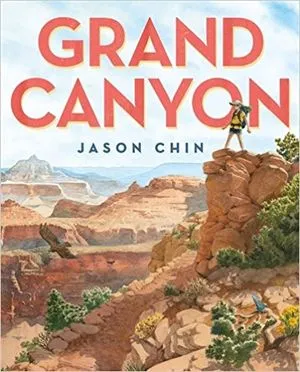
Grand Canyon by Jason Chin
All of Chin’s picture books are just amazingly done, and this one is no exception. This book takes the reader through time at the Grand Canyon, exploring the geology and the wildlife, with detailed illustrations and informative information. Fold-out pictures and cutouts throughout the book add to the experience of reading the book. This is one you’ll return to again and again, and it can be appreciated by kids (and adults) of all ages.
Books About National Parks/Outdoors for Adults

The Bears Ears: A Human History of America’s Most Endangered Wilderness by David Roberts
The Bears Ears National Monument has more archaeological sites than any other region in the U.S., and has been in the middle of an environmental conflict since the 1950s. Drilling, off-roading, and politics have all threatened this land. Roberts takes the reader into this place, a place he loves passionately — part memoir and part history, this book details the story of Bears Ears, the issues surrounding it, and what its future might hold.

100 Great American Parks by Stephanie Pearson
This is a gorgeous coffee table book that you’ll want to escape into when you’re not able to actually travel to the parks. Covering all 63 national parks and 37 state, recreational, and city parks, as well as green spaces, this book details the wildlife in each space, the need for conservation, travel tips, and much more.

Trace: Memory, History, Race, and the American Landscape by Lauret Savoy
Just like the land holds histories and stories, so too, do we. Savoy, a geologist and Earth historian, delves into this in this book, exploring national parks, the U.S.-Mexico border, burial grounds, and much more, writing about their histories and stories that are still present today. The stories of Indigenous peoples, her enslaved ancestors, and settler colonists — all carved a path. She explores relationships with race, gender, and the environment, and while more questions than explanations are put forth, this is a necessary book for our time, encouraging readers to think more deeply about these issues.

The Hour of Land: A Personal Topography of America’s National Parks by Terry Tempest Williams
Williams is a master nature writer, and her passion for the land is evident in her writing. In this book, she combines memoir, personal essay, and nature writing when she goes to various parks, including Acadia and Big Bend. She not only writes about the issues facing the parks and public lands, but also about the history of the parks, how we have shaped them, and how they have shaped us, as well.
If this list only whetted your appetite for books about National Parks, check out the 100 Must-Read Books About the National Parks.







